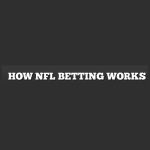Understanding Sports Betting Odds
Sports betting odds can be confusing for beginners, as they are represented in different formats such as decimal, fractional, and American. Each format presents the probability of a particular outcome and the potential payout in a slightly different way. Understanding how to read and interpret these odds is crucial for making informed betting decisions.
In decimal odds, the number represents the total payout rather than just the profit. For example, odds of 2.50 mean that for every unit of currency wagered, you will receive a total of 2.50 units back if your bet is successful. Fractional odds, on the other hand, represent the potential profit relative to the stake. For instance, odds of 5/1 mean that for every unit of currency staked, you will make a profit of 5 units if your bet wins. American odds are either positive or negative numbers, with positive odds indicating the potential profit on a $100 bet, while negative odds show how much you need to stake to win $100.
Different Types of Sports Bets
When it comes to sports betting, there are various types of bets that punters can place to add excitement to their wagering experience. One common type is a straight bet, where a bet is placed on a single outcome of a game or event. Another popular option is an accumulator bet, where multiple selections are made, and all must win for the bet to be successful.
In addition to straight and accumulator bets, punters can also explore options like parlay bets, which involve combining multiple selections into a single wager for a potentially higher payout. For those looking for more complex bets, proposition bets offer unique opportunities to wager on specific outcomes within a game. Overall, understanding the different types of sports bets available can help bettors make informed decisions when placing their wagers.
The Role of Bookmakers in Sports Betting
Bookmakers play a crucial role in the world of sports betting. They are the ones who set the odds for different sporting events, using a combination of statistical analysis, historical data, and expert knowledge. By doing so, bookmakers strive to accurately reflect the likelihood of different outcomes in a match or game.
In addition to setting odds, bookmakers also serve as the middlemen between bettors. They accept bets on both sides of an event, adjusting the odds as needed to ensure they will make a profit regardless of the outcome. This balancing act requires skill and precision, as bookmakers must constantly monitor betting patterns and adjust their odds to mitigate potential losses.
Factors to Consider Before Placing a Bet
When considering placing a bet, it is crucial to analyze the current form of the teams or athletes involved. Assessing their recent performances, injury reports, and head-to-head matchups can provide valuable insight into their potential success in upcoming events.
Another key factor to take into account before placing a bet is understanding the significance of odds. It is essential to be familiar with the different types of odds, such as fractional, decimal, and moneyline, as well as how to interpret them to make informed betting decisions. Furthermore, evaluating the implied probability of each set of odds can help in determining the likelihood of a particular outcome.
Calculating Potential Payouts
When it comes to sports betting, understanding how to calculate potential payouts is crucial for making informed betting decisions. Potential payouts are determined by multiplying the amount wagered by the odds of the bet. For example, if you bet $100 on a team with odds of 2.5, your potential payout would be $250 ($100 x 2.5).
Calculating potential payouts allows bettors to evaluate the risk and reward of their bets. By knowing how much they stand to win based on the odds offered, bettors can determine if a bet is worth the investment. It is essential to remember that higher odds usually mean higher potential payouts but also come with greater risk, while lower odds offer lower potential payouts with higher chances of winning.















